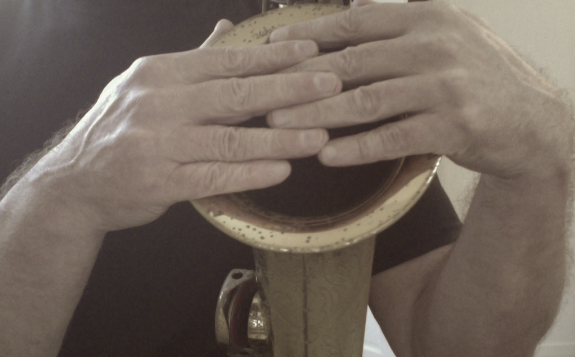There seems to be a conflicting theme these days expressed by some veteran jazz musicians (from the widely know to the more obscure) about the current culture of young, “up and coming” artists.
On the one hand, I hear many complaints about the lack of individuality in sound and approach perceived in many of these young musicians: “They sound generic. There’s nothing that identifies them immediately in what they play. When Coltrane, Miles or Monk played, you could tell it was them in one note.” (I’m paraphrasing here.)
On the other hand, there are complaints about a “culture of innovation” amongst younger artists that is sometimes perceived as being overly self-conscious: “What they’re playing sounds so forced, so unnatural. It doesn’t have a strong enough connection to the tradition. It comes across as too cerebral. It doesn’t swing.” (Again, I’m paraphrasing.)
I’m not here to agree or disagree with the sentiments expressed above. Rather, I’d like to talk about this conundrum specifically. I’ll start with this rhetorical question: As an artist, is it more important to be innovative or authentic?
Both innovation and authenticity have great value in art. In the world of jazz, some of the greatest, most influential improvisers have been stunningly innovative.
Besides the three I mention above, we have Duke Ellington, Louis Armstrong, Lester Young, Ornette Coleman, and Charlie Christian, Kenny Clarke, to name but a few. All of these artists have radically opened up the possibilities of self-expression in jazz by expanding and redefining the role and/or capabilities of their respective instruments in the act of improvisation (or in the case of Mr. Ellington, compositional and orchestral possibilities).
But we also have a wealth of artists who are less innovative, yet highly influential and highly valuable to the jazz lexicon. For example, Cannonball Adderley, Kenny Dorham and Kenny Barron, though they didn’t “expand” the boundaries of the music to the degree some others have, are strong and vital influences to the music. (Great artists with distinctive voices on their respective instruments!)
Whether more an “innovator”, or more a “traditionalist”, or “stylist”, all great artists have one thing in common: Clear, immediate authenticity.
As Thelonious Monk said (another powerful innovator in jazz!), “A man’s a genius just for looking like himself.” I think it’s safe to say all the musicians I’ve mentioned above most certainly fall within Mr. Monk’s definition.
Which brings me to my point: Whatever you want to do as a musical artist, place authenticity first.
By allowing for authenticity (yes, allowing), you free yourself from expectations. (You have nobody to answer to but your own muse, your own impulse to make music.) You free yourself from lots of stifling judgements about your music. (It doesn’t matter how “unique” your music is, as long as it flows freely and generously from you.)
In essence, when you express yourself authentically through your music, you are in a constant state of gratitude. You accept the music that comes through you as a gift, and you share it with the world. You are open and welcoming to so much: ideas, sound, connections with other musicians, time, rhythm and more.
I think it’s important to keep in mind that the vast majority of innovators in the history of jazz weren’t trying to be innovators. They were just working with the materials of music as they found their way to their own need for artistic expression. They were “looking like themselves” as they followed their curiosity and passion.
It’s probably impossible to consciously try to make music that is “innovative”. For music to be deemed innovative, it must, by definition, change the course of the art form, and significantly expand the vocabulary of the expressive language. It must have a measurable, lasting influence on the artists of the present and of the future. That’s huge. You can’t force that happen out of sheer will. It either does or doesn’t.
Just like the greats, all you can do is follow your curiosity and passion. If your music is innovative, it will most likely rise from a natural and authentic curiosity. Curiosity about the materials of music, curiosity about your instrument, curiosity about yourself. And passion as the fuel for action (practice and study).
Aim for making music that is truly beautiful to you. Don’t second guess it. If it touches you, it will, without doubt, touch others. And that makes what you do so valuable. Don’t let the need for innovation steer you into making music that isn’t beautiful to you. (Likewise, don’t let the fear of unknown artistic territory keep you from surprising yourself with new musical discoveries.)
Allow the possibility that your viewpoint (tastes, ideas, values, perception, etc.) can change and grow. As I get older, my music making seems less conceptual and “cutting-edge” to me, but so much richer, more clearly conceived, more expressive and more beautiful than ever before. (It’s more me than ever before.)
Whether or not your musical expression falls well inside the mainstream, or far from it, if you hear and feel something that lights you up, go after it. As long as it’s it’s truly yours, you’ll be glad you did.
“Who are you?” is the question that can best guide you. So take plenty of time to stay on the path of self-discovery as you cultivate your curiosity and expand your possibilities. Enjoy the beauty you create along the way.
